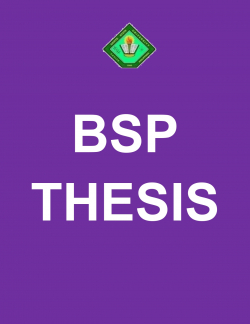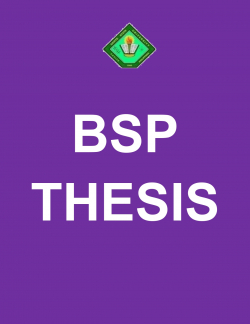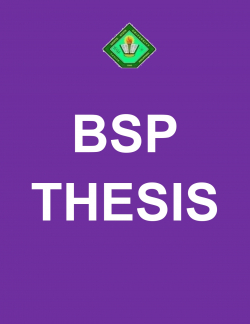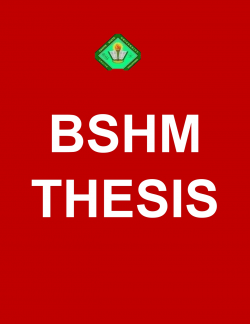Examining Gen Z Parents' Rejection of Corporal Punishment in Parenting: The Influence of Their Childhood Experiences on Discipline Practices.

Type
Thesis
Category
Thesis-BSP
[ Browse Items ]
Publication Year
2025
Pages
xv, 386p.
Subject
Corporal punishment of children—Philippines Child rearing—Philippines Parenting—Psychological aspects Discipline of children—Psychological aspects Parent and child—Philippines Generation Z—Family relationships
Abstract
This study was designed to explore the underground music industry in the Philippines
and what it takes to be a solo underground artist. Raw data were collected from Filipino
underground artists. The objective of this study is to explore the lived experiences of local
musicians, shed light on the challenges they face, examine the effects on their mental,
physical, and holistic health, and understand how they cope with these struggles. It also
aims to examine how they perform amidst emotional tensions, whether they experience
catharsis during performances, and identify their viewpoints, particularly regarding mental
health awareness. Ultimately, the study seeks to propose a wellness plan that addresses the
mental health needs of solo artists.
The researchers approached it with a phenomenological qualitative research method.
The participants were purposely selected through social media platforms. The criteria for
selecting the participants were as follows: a) A solo artist or an artist that produce and
perform individually and is not actively performing or representing a music group b) is an
underground artist or an artist that does not represent, produce, perform under any music
label or institution and all outputs is purely self-scarced.
The study was conducted through a semi-structured interview gathering 9 artists
using purposive sampling. Using phenomenological analysis the results of the study are
organized to cater the 5 different objectives mentioned: (1) Societal Impact Analysis, (2)
Psychosocial Challenge Assessment, (3) Cathartic Music Production, (4) Wellness Plan
Development.
The results of the study reveal a complex variety of perspectives. While the majority
of participants share similar overall struggles, each individual also expresses unique coping
mechanisms, viewpoints, and mindsets in continuing their chosen music journeys.
Collectively, all participants agreed on the importance of improving the current state of the
music industry in the Philippines and expressed strong support for raising awareness about
mental health among performers, recognizing its significance.
The researchers, taking each and every participant’s adherence, devised and
proposed a wellness plan aimed in offering an inclusive community-based event, that allows
local artists to find an environment where expression and creativity is met with mental health
awareness, through offering lectures, where learning is driven while passion strives, and
where music production is encouraged, which could theoretically allow the industry to further
grow whilst ensuring a healthy performing space where the mental welfare of artists are
envisioned.
and what it takes to be a solo underground artist. Raw data were collected from Filipino
underground artists. The objective of this study is to explore the lived experiences of local
musicians, shed light on the challenges they face, examine the effects on their mental,
physical, and holistic health, and understand how they cope with these struggles. It also
aims to examine how they perform amidst emotional tensions, whether they experience
catharsis during performances, and identify their viewpoints, particularly regarding mental
health awareness. Ultimately, the study seeks to propose a wellness plan that addresses the
mental health needs of solo artists.
The researchers approached it with a phenomenological qualitative research method.
The participants were purposely selected through social media platforms. The criteria for
selecting the participants were as follows: a) A solo artist or an artist that produce and
perform individually and is not actively performing or representing a music group b) is an
underground artist or an artist that does not represent, produce, perform under any music
label or institution and all outputs is purely self-scarced.
The study was conducted through a semi-structured interview gathering 9 artists
using purposive sampling. Using phenomenological analysis the results of the study are
organized to cater the 5 different objectives mentioned: (1) Societal Impact Analysis, (2)
Psychosocial Challenge Assessment, (3) Cathartic Music Production, (4) Wellness Plan
Development.
The results of the study reveal a complex variety of perspectives. While the majority
of participants share similar overall struggles, each individual also expresses unique coping
mechanisms, viewpoints, and mindsets in continuing their chosen music journeys.
Collectively, all participants agreed on the importance of improving the current state of the
music industry in the Philippines and expressed strong support for raising awareness about
mental health among performers, recognizing its significance.
The researchers, taking each and every participant’s adherence, devised and
proposed a wellness plan aimed in offering an inclusive community-based event, that allows
local artists to find an environment where expression and creativity is met with mental health
awareness, through offering lectures, where learning is driven while passion strives, and
where music production is encouraged, which could theoretically allow the industry to further
grow whilst ensuring a healthy performing space where the mental welfare of artists are
envisioned.
Description
This qualitative phenomenological study examines how Generation Z parents in the Philippines reject corporal punishment and how their childhood experiences shape their discipline practices. It explores the intergenerational shift in parenting approaches, highlighting the influence of personal histories, emotional reflection, and evolving societal views on child discipline. Findings emphasize the preference for positive, non-violent discipline methods that foster healthier parent–child relationships.
Biblio Notes
Almeda, A. F., Bertuldo, A. R., Boquiren, R. M. P., Catapang, C. M., Copioso, A. M. M., & Dizon, J. (2025). Examining Gen Z parents’ rejection of corporal punishment in parenting: The influence of their childhood experiences on discipline practices [Unpublished undergraduate thesis].
Number of Copies
1
| Library | Accession No | Call No | Copy No | Edition | Location | Availability |
|---|---|---|---|---|---|---|
| CvSU Bacoor City Campus | 5000091 | 1 | Yes |




